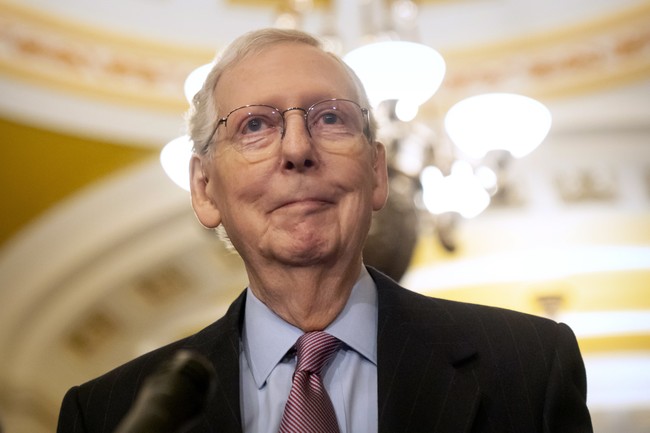Trump Halts NYC Congestion Toll: Policy Recoil and Debate
Explore the contentious halting of New York City's congestion pricing system by President Trump. Understand the diverse reactions and the broader implications for the city's environment and transit.
Published February 22, 2025 - 00:02am

Image recovered from marketbeat.com
The Trump administration's recent decision to halt New York City's congestion pricing system has sparked a multifaceted debate, drawing attention from policymakers, environmental activists, and everyday citizens. The decision, endorsed by U.S. Transportation Secretary Sean P. Duffy, revoked the federal approval of the tolling initiative designed to regulate traffic and fund public transit, triggering widespread reactions and legal challenges.
The congestion pricing scheme, launched in early January, was crafted to mitigate Manhattan's infamous traffic and bolster the city's struggling mass transit infrastructure through revenue generated from a $9 toll on most passenger vehicles entering specific regions of the city. Despite its objectives, the program was met with mixed reactions. Some applauded it as a progressive move to reduce vehicular pollution and improve air quality, while others, particularly vehicle owners from less serviced suburbs, viewed it as an unfair financial burden.
Among the most vocal opponents of the congestion fee are New Jersey Governor Phil Murphy and New York Governor Kathy Hochul, both expressing concerns about its economic implications. Murphy actively contested the toll through legal channels, while Hochul initially supported a postponement of the system's launch, citing potential adverse effects on local commerce. Despite these reservations, Hochul had eventually endorsed the toll at a reduced rate, recognizing its significance in addressing New York's transport funding crises.
The move to suspend the system has been criticized by transit advocates who saw it as an essential tool for urban sustainability. They argue that the congestion fee is a necessary step for cities seeking to curb traffic congestion, improve public transit efficiency, and address environmental concerns related to car emissions. These advocates often reference successful implementations in global cities like London and Stockholm, where congestion pricing has reportedly yielded positive results.
However, critics, including Trump, who maintains properties within the congestion zone, have labeled the tolling system as a regressive tax that disproportionately affects the working class. Trump's criticism aligns with a broader narrative against policies perceived as financially burdensome for everyday Americans, echoing concerns over economic inequality.
Adding a layer of political theater, the Trump administration employed satirical imagery by sharing a mock magazine cover depicting Trump as a king, celebrating the toll's demise. This portrayal has drawn attention on social media, with the White House's social media profiles projecting Trump as a monarchical figure, reinforcing his triumphant yet controversial stance on the issue.
Moreover, the suspension has broader implications beyond New York City's borders. It represents a critical moment in the ongoing discourse over urban policy, sustainability, and economic justice. As legal battles loom, with New York's Metropolitan Transportation Authority challenging the decision, the tension highlights the complex intersection of local governance, federal policy, and public perception.
The revocation has reignited discussions in the realm of public policy, prompting questions about the role of federal authority in local urban planning and environmental endeavors. As cities worldwide grapple with similar transit challenges, New York's experience stands as a pivotal case study in evaluating congestion pricing's viability and adaptability within the American urban landscape.
Looking ahead, the outcome of this policy standoff will likely influence future urban planning initiatives across the United States, as stakeholders seek to balance economic growth with environmental stewardship and infrastructure sustainability, while addressing the broader socio-economic concerns at play.







